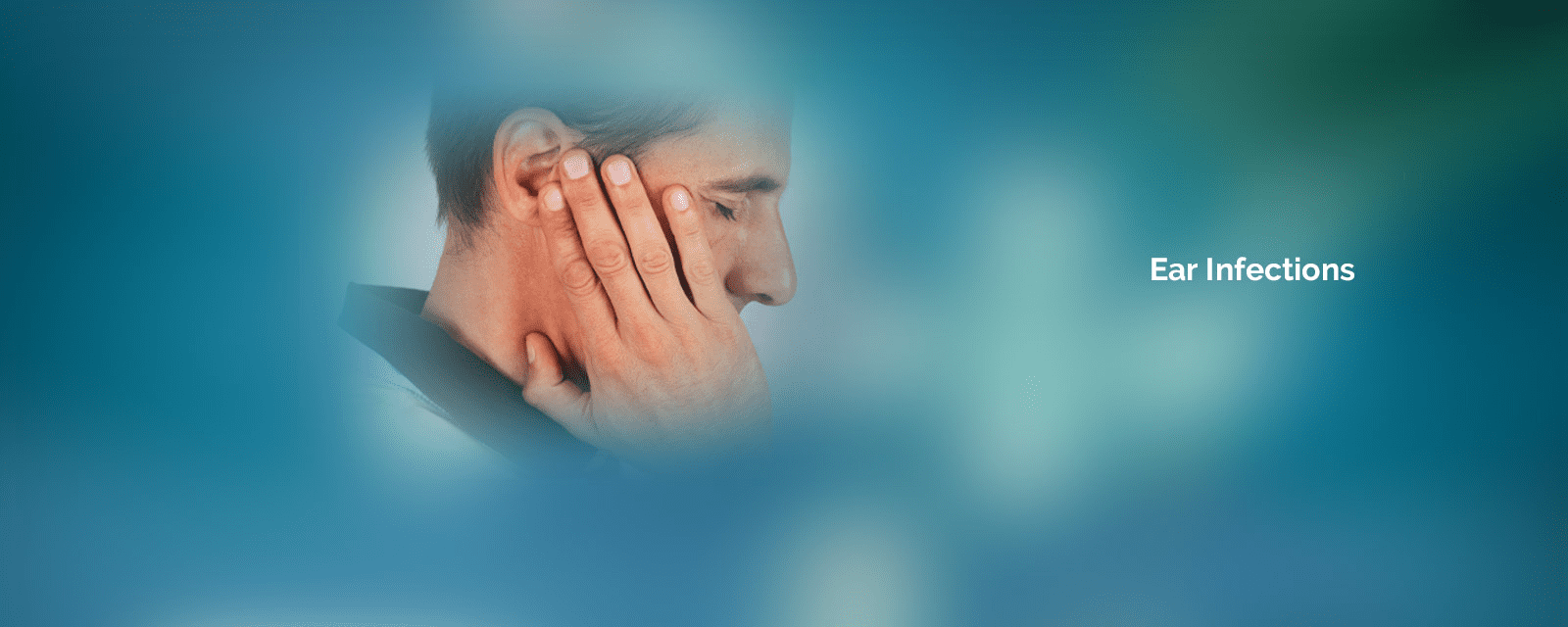An ear infection is a condition caused by a bacterial or viral agent, there are usually three common types. Middle ear infection, swimmer’s ear and labrynthitis. The middle ear is usually the part affected. The middle ear is the section behind the eardrum. Ear infections are quite painful because of inflammation and fluid build-up. Ear infections may be chronic or acute. Chronic infections do not clear up easily and recur. Ear infections are quite common, and more than 4% of the Indian population is or has been once affected by ear infections according to statistics. All age groups are affected by ear infections, but children are the worst affected of all.
Common symptoms of ear infection include:
- Pain and discomfort in the ear
- A feeling of pressure inside the ear that persists
- Hearing loss in the affected ear
- Pus like drainage from the ear
- Nausea
See a doctor if you or your loved ones experience any of the above mentioned symptoms. Always trust premier medical institutions like Paras Hospitals group, which have specialized departments for the treatment and care of such conditions.
Ear infection is caused by bacteria or a virus, resulting from another illness, cold, flu or allergy, but there may be other causes depending on the specific type of ear infection. All ear infections, however, are a result of the Eustachian tubes being blocked, which are small tubes that run directly from the ear to the back of the throat. Children are more adversely affected as they have narrower Eustachian tubes. A swimmer’s ear results from water collecting in the outer ear canal, which becomes a breeding ground for bacteria. Risk factors include:
- Allergies
- Sinus infections
- Smoking
- Excess mucous
- Infected adenoids
- Altitude changes
- Climate changes
- Recent illness
- Using infected earphones or cotton swabs
- Intense scratching
Mild ear infections clear up without medical intervention. If it doesn’t, pain medication such as ibuprofen, ear drops or decongestants like pseudoephedrine are prescribed. If the infection is chronic, the doctor will most likely prescribe antibiotics. Surgery might be required if the infection is not resolved using medical treatments. Tubes are placed to drain out fluid. If the infection involves enlarged adenoids, the adenoids may be removed.



 Call us at
Call us at